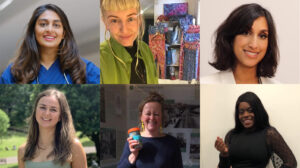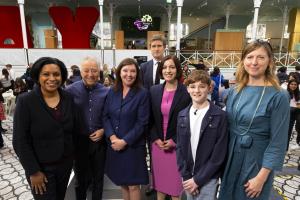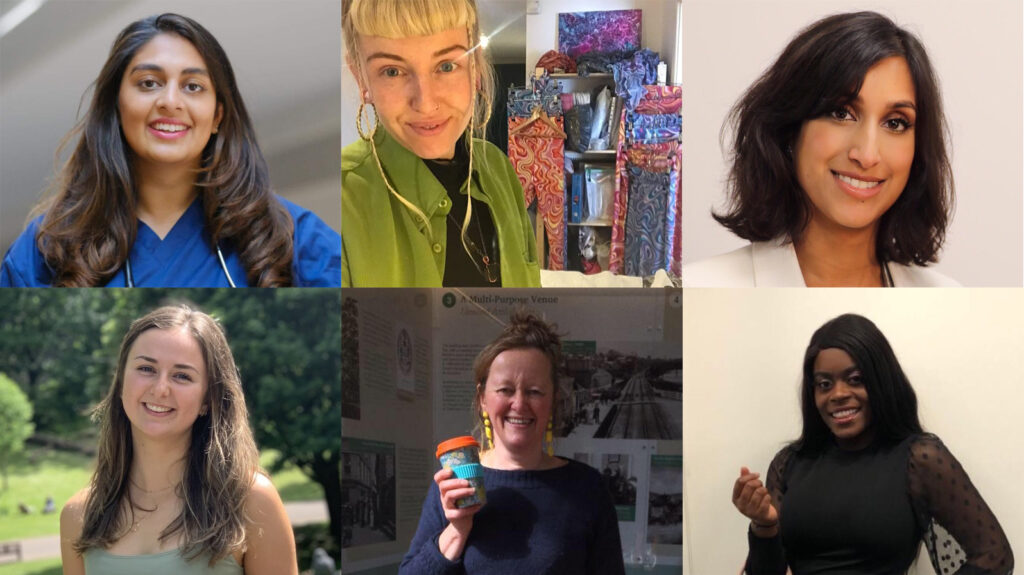
To help connect the maths curriculum with careers, skills and everyday life, we are developing a resource for children that will share career profiles of people who use maths in their jobs and how maths has helped them in their careers and lives. These ‘role models’ aren’t necessarily in a maths specific career, but more generally make use of maths or maths-related skills (e.g. problem solving, creativity and analytical thinking) in their working life, for example in a career in fashion.
If you, or someone you know has a role that utilises maths or maths skills, please fill out this form, as we would love to have a great variety of roles profiled.
To commemorate National Careers Week and International Women’s Day we are sharing a preview of the resource.
The Big Ask was the largest survey of children in England, with half a million responses. In this we asked children and young people what their aspirations and worries for the future were, girls highlighted the need for female role models. This was to help them see a future for themselves and in our resource we want to feature the opportunities that science, technology, engineering and maths (STEM) can provide as children told us this is an area that isn’t emphasised enough:
‘I think that the stigma in girls in science and maths is very toxic. From very young, as a girl I didn’t see any girls taking on that career path and just thought that girls couldn’t do this. I now know that I want to go into the chemistry field and … overall people have told me and every other girl that we can’t do this and it is a boys thing to do’ – Girl, 14
‘They may not be presented with the same opportunities… [and] have that role model (e.g parents) to show that they are able to achieve higher careers’ – Girl, 16
‘It’s a devastating thought thinking that in the future my potential in education and a career can be controlled by my sex and sexuality’ – Girl, 14
Here are six female career role models who use maths in their job and everyday life, that will be included in the resource:
- Nirja, Doctor, NHS
- Sophie, Small business owner, clothing designer, Delirium by Sophie
- Claire Coutinho, Member of Parliament for East Surrey, House of Commons
- Rachael, Trainee Patent Attorney (Physics/Engineering/IT), Abel + Imray
- Kate, Baker, Kate’s Bakery
- Kim, Project Manager, Civil Service/Smart Works
Nirja, Doctor, NHS

What do you do on a day-to-day basis?
I treat patients and consider risk, look at evidence with probabilities and use arithmetic to write prescriptions and calculate dosages of medications.
How do you use maths in your role?
To prescribe medication doses and quantities, I use mental arithmetic throughout the day. When I explain to patients about starting a treatment, I use risk and probability to explain why a medication may be beneficial. When looking at population health, I use graphs to look at factors such as a child’s growth and to calculate a patient’s body mass index.
What skills are important to your role?
Communication, problem solving and critical thinking.
What do you like most about your role?
The ability to make a difference to people’s lives.
What hobbies do you have and how do they help you in your career?
I teach dance in my spare time, this helps with my communication, creativity and leadership.
How does maths help you in your everyday life?
Maths is essential to day to day life, whether it’s paying a bill, understanding VAT, savings, tax or budgeting.
What type of education do you have?
I have GCSEs and A levels in sciences, an AS level in maths and an MBBS.
What career advice do you have for young people?
To try and gain work experience.
Sophie, Small business owner, clothing designer, Delirium by Sophie
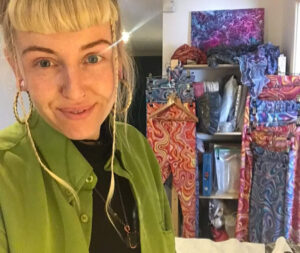
What do you do on a day-to-day basis?
I make clothing, manage social media filming/photographing items, manage emails spreadsheets and accounts.
How do you use maths in your role?
Spreadsheets, budgeting, measurement for sizing up/down, data analysis for sales and marketing.
What skills are important to your role?
Creativity, problem solving, customer service.
What do you like most about your role?
I love that I get to play around all day in the fabrics I created, even the less interesting tasks I enjoy because I’m continually working towards my dream coming alive! Patterns in mathematics fascinate me, I find it poetic the way geometry in nature/the universe then correlates throughout our lives in our cells and design throughout the world. Maths makes up our whole universe, it’s logical and creative at the same time!
What hobbies do you have and how do they help you in your career?
Music events and festivals are my joy in life, the feeling of togetherness when your in a crowd of likeminded people, is what life is about! I make my clothing specifically for festivals and clubs, so attending these events helps me make connections for work collaborations and create content for marketing.
How does maths help you in your everyday life?
All my jobs leading up to opening my own company were math based jobs, before this I wanted to travel and so I needed to find well paid work to save quickly and efficiently. Basic maths was a necessity for me to find office based jobs that allowed me to move from hospitality industry to £30K + salary with relative ease. Previous jobs I had included doing credit control for a property firm and a night club and being Head of Buying for a set design company.
What type of education do you have?
GCSEs – Diploma – Bachelors Degree
What career advice do you have for young people?
Experiment with jobs, get a lot of experience with internships but if something doesn’t fit try something else, don’t get stuck trying to please bosses at a job you hate. When you’ve found what you love doing, don’t hesitate, just start! You will never be completely ready but learning by doing will be the most valuable lesson.
Nothing comes easily but if you want it enough and are persistent you can make your dreams come true. Never give up on your dreams just find a way around the obstacle!
Claire Coutinho, Member of Parliament for East Surrey, House of Commons
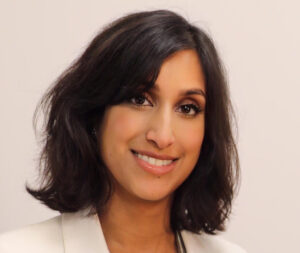
What do you do on a day-to-day basis?
As a Member of Parliament and additional appointment as Parliamentary Private Secretary to the Treasury, I scrutinise and create public policy and legislation.
How do you use maths in your role?
In my role as a Member of Parliament I work with policy makers and pollsters, to gather a lot of statistical analyses so I can create evidence based policies. In my additional role as Parliamentary Private Secretary to the Treasury, I use spreadsheets and work with analyses of public finances.
What skills are important to your role?
Creativity, problem solving and building an argument!
What do you like most about your role?
I have always loved maths from a young age. I love the feeling you get when you’ve solved a problem. Before I became a Member of Parliament, I helped create a National Numeracy Day. I wanted to encourage a culture where we find someone saying ‘I can’t do numbers’ as concerning as someone saying ‘I can’t read’. This is one of the reasons I wanted to become a Member of Parliament, I wanted to be at the heart of the place (Government) which has the powers to put the tools in place to make sure all adults are at ease when dealing with numbers.
What hobbies do you have and how do they help you in your career?
Cooking, reading and cryptic crosswords!
How does maths help you in your everyday life?
It’s helped me with problem solving, budgeting and also understanding the news, so I can get a grasp of the severity of the problems being reported.
What type of education do you have?
I have GCSEs in sciences and mathematics, A-Levels in mathematics and further mathematics, as well as Bachelor’s and Master’s in Maths and Philosophy.
What career advice do you have for young people?
Everything in life is about flying hours. The more you do something the better you get at it. It’s important to try and build excellence in something.
Rachael, Trainee Patent Attorney (Physics/Engineering/IT), Abel + Imray

What do you do on a day-to-day basis?
I work with inventors and engineering companies to help them protect their ideas. We do this by drafting patent applications (a document describing how an invention works) and arguing with the patent office (which is like a court for science and engineering) why the invention is new and inventive.
How do you use maths in your role?
Inventors often use maths, especially mechanics, when describing their inventions. We sometimes need to use graphs to explain their invention. We also use maths when calculating the fees we need to pay for a patent – which there’s a lot of!
What skills are important to your role?
Problem solving, communication skills (writing and speaking) and time management.
What do you like most about your role?
I love that I get to see lots of new inventions and that no two days are the same. I’ve always found maths so satisfying – there’s no better feeling than solving an equation or answering a question you’ve been stuck on. Maths plays such a key part in things we use everyday so I think it’s interesting to see how it applies in the real world, for example your microwave or the car you get a lift in.
What hobbies do you have and how do they help you in your career?
Singing and performing, I used to work abroad in entertainment before I started this job. Entertainment really helped me develop my communication skills and confidence. I love doing yoga as it helps me relax and it is a good time to ‘switch off’.
How does maths help you in your everyday life?
Maths helps me in everyday tasks, from calculating what product is the best value in the supermarket to working out the bills for me and my housemates. It’s also helpful when figuring out a maths problem to help my other friends in STEM – which happens more often than you’d think!
What type of education do you have?
I have GCSEs in science, maths and additional maths, and A Level Maths, Further Maths and Physics. I have a Bachelor’s degree in Mechanical Engineering.
What career advice do you have for young people?
Choose subjects you’re passionate about and give it your all. I didn’t even know my job existed until about a year before I started, I just loved maths and science because I was obsessed with figuring out how things worked. If you have the chance to do some work experience, it’s a great way of figuring out if you’d enjoy a particular job.
Also, don’t forget your hobbies! Especially when you’re studying STEM subjects, it’s important to have something you can blow off some steam with.
Kate, Baker, Kate’s Bakery
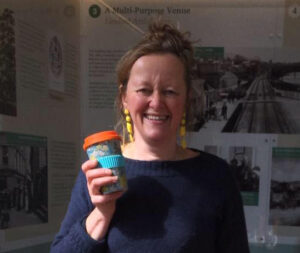
What do you do on a day-to-day basis?
I use mental arithmetic and basic written calculations throughout the day to follow and adjust recipes and formulate baking schedules. On market days I use mental arithmetic when serving customers.
How do you use maths in your role?
Other uses for maths in my role as a self employed business owner include costings , book keeping and profit and loss forecasting.
What skills are important to your role?
Accuracy, stamina, entrepreneurial skills.
What do you like most about your role?
I’m passionate about baking real bread and providing a crucial service in my small community. Maths is integral in any work with food production. It is also crucial in the successful running of a small business.
What hobbies do you have and how do they help you in your career?
I love to sample new food experiences. I maintain my strength and well being with yoga and walking and wild swimming. An active cultural life stimulates ideas and opportunities.
How does maths help you in your everyday life?
I have four children and so money management is a very important part of running a household and imparting solid financial skills for life.
What type of education do you have?
English BA hons
What career advice do you have for young people?
Follow your passion but ground it in reality and solid skills and hard work. Don’t be afraid to change and never stop learning. Stay curious and stay canny!
Kim, Project Manager, Civil Service/Smart Works
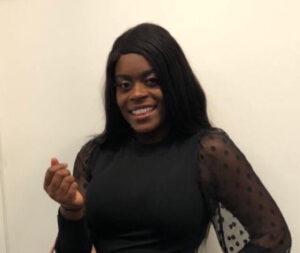
What do you do on a day-to-day basis?
I do a lot of different things on a day-to-day basis. Some of the things I’ve worked on include project managing staff conferences, writing the internal activity report for the charity, which displays the quantity of women we support each month. I’m also currently setting up a care leavers programme for SmartWorks and I provide general day-to-day business support for the charity.
How do you use maths in your role?
The monthly activity reports I write share statistics on the impact the charity has. I use excel to write percentages and to show whether we are on or off target. When planning conferences, I use excel to work out the costs and to ensure that we stay within the budget.
What skills are important to your role?
Working with people, communicating and problem solving.
What do you like most about your role?
I get to work on various projects and learn new skills. I love working with new people which is something that I get to do often.
What hobbies do you have and how do they help you in your career?
Working with young people has helped me to learn about interpersonal skills.
How does maths help you in your everyday life?
It helps me to manage my finances and to live on a budget!
What type of education do you have?
I have 10 GCSEs, 3 A-levels and Bachelors of Science with Hons in International Business (which is a maths/statistics based degree).
What career advice do you have for young people?
Go for it! Get as much experience as possible and get involved in a substantial amount of extra-curricular activities.



